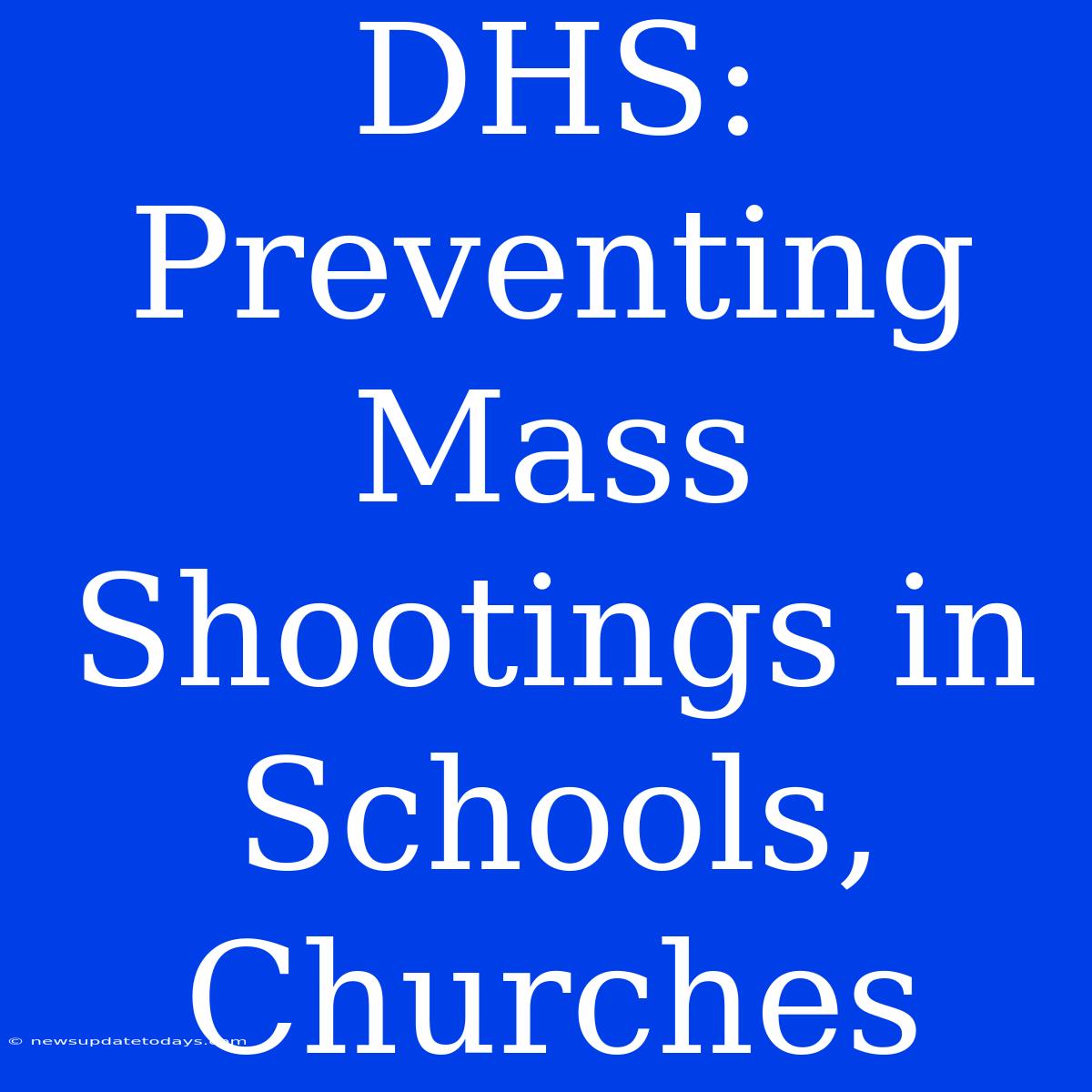DHS: Preventing Mass Shootings in Schools and Churches: A Comprehensive Approach
The devastating impact of mass shootings in schools and churches demands a multifaceted approach to prevention. The Department of Homeland Security (DHS), along with local, state, and federal partners, plays a crucial role in mitigating this threat. This article explores DHS's strategies and the broader collaborative effort needed to create safer communities.
Understanding the DHS Role
The DHS isn't solely focused on responding to active shooter events; prevention is a key priority. Their efforts encompass several areas:
-
Information Sharing: DHS facilitates the seamless exchange of threat information between agencies, allowing for early detection of potential threats and enabling timely interventions. This involves collaboration with law enforcement, intelligence agencies, and community organizations.
-
Grant Programs: The DHS provides funding to schools, churches, and other vulnerable locations to enhance security measures. This funding can be used for things like active shooter training, security system upgrades (cameras, access control), and physical security improvements.
-
Training and Resources: DHS offers a range of training programs and resources designed to equip individuals and organizations with the knowledge and skills to prepare for and respond to active shooter situations. This includes training for first responders, school staff, and community members.
-
Partnerships and Collaboration: Effective prevention requires a collaborative approach. DHS works closely with numerous partners, including state and local law enforcement, faith-based organizations, school districts, mental health professionals, and community leaders, to develop and implement comprehensive prevention strategies.
Beyond Security Measures: Addressing the Root Causes
While physical security enhancements are crucial, addressing the underlying causes of violence is equally important. This requires a broader societal effort focused on:
-
Mental Health Support: Early intervention and access to mental healthcare are critical. Identifying individuals at risk and connecting them with appropriate resources can prevent violence before it occurs.
-
Community Engagement: Fostering strong, resilient communities is essential. This involves building trust between law enforcement and the community, promoting social cohesion, and addressing social inequalities that can contribute to violence.
-
Gun Violence Prevention: Discussions around gun control and responsible gun ownership are crucial components of a comprehensive prevention strategy. These conversations must be evidence-based and respectful of differing perspectives.
-
Threat Assessment: Developing and implementing effective threat assessment programs in schools and churches can help identify individuals who may pose a risk and intervene before violence occurs. These programs should be implemented by trained professionals and prioritize due process and fairness.
The Importance of Community Involvement
The success of any mass shooting prevention strategy depends heavily on community participation. Individuals can play a role by:
-
Reporting suspicious activity: If you see something, say something. Report any concerning behavior to the appropriate authorities.
-
Participating in training: Taking part in active shooter training can help individuals prepare for and respond to such events.
-
Supporting mental health initiatives: Advocate for increased access to mental healthcare in your community.
-
Engaging in respectful dialogue: Participate in community discussions about gun violence prevention and other related issues.
Conclusion: A Collaborative Effort for Safer Communities
Preventing mass shootings in schools and churches requires a comprehensive and collaborative effort. The DHS plays a vital role in coordinating resources and providing support, but ultimate success hinges on the collective commitment of individuals, organizations, and all levels of government. By working together, we can create safer communities for everyone.

